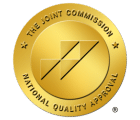Is Your Family Member Hiding Their Alcoholism?
10 Signs Your Loved One is Struggling
Over three million people every year die from alcoholism, alcohol abuse, or alcohol use disorder (also known as AUD). This means that up to six percent of deaths globally can be attributed to the misuse of alcohol.
These statistics are striking, but there is also good news: there is hope for those with AUD when met with proper treatment measures.
However, how can your loved one receive treatment if he or she is hiding their alcoholism? You should be aware of ten main signs if you are concerned that your family member is struggling with alcohol abuse. However, before you can look for these signs, you must first break down any stereotypes about AUD that you are subconsciously holding on to.
Functioning Alcohol Use Disorder
When most people imagine the typical alcoholic, they think of the person with AUD that the movies portray. The image of a poor man living on the streets with no job and no family is conjured in their mind.
This is simply not the whole picture. In the United States, over 19 percent of those with AUD, their alcoholism is functional. This refers to the concept that your loved one is appearing functional on the outside while struggling with AUD internally.
For example, they may have gotten a good education and are currently working at a high-paying job. And yet, they are still struggling.
Your family member’s mental health cannot be determined solely by the way they manage school or work. So let’s examine the situation further.
Why is my Alcoholic Loved One Hiding?
It might be challenging to grasp why someone who is struggling so intensely would want to hide their plight. What is stopping my family member with AUD from seeking help?
There are many reasons why someone with a history of alcohol abuse would avoid speaking up about their struggle.
One of these is fear. Your loved one may fear judgment, conflict with those who discover that they are having trouble and even fear acknowledging to him or herself that they are having problems with drinking. Sometimes releasing that inner denial is the most challenging step.
It is also feasible that your loved one holds a moral or religious belief against drinking in excess (or consuming alcohol entirely). This belief may be holding your family member back from confessing that they are struggling.
For high functioning alcoholics, there might be an aspect of self-preservation in their practice of hiding. They may be thinking, “I could lose my job if I seek help.” In addition to this, some high functioning alcoholics simply do not realize that they have a problem with alcohol.
They notice that they have met their educational and vocational goals, and so they do not view it as an issue having a few more drinks than most people.
Despite these fears, hesitations, and possible misunderstandings, your family member must be offered help for their AUD as soon as possible. If you are anxious about your loved one’s drinking habits, be on the lookout for the following signs.
1. My Family Member Continually Drinks More than a Moderate Amount of Alcohol
The Centers for Disease Control and Prevention (CDC) states that moderate alcohol consumption is strictly defined with women having one drink per day and with men it’s two drinks.
Therefore, if your family member is drinking more than the amount designated for their sex, they would be considered to be drinking heavily. In addition to this, four drinks (for women) and five drinks (for men) consumed within a two-hour period is considered a session of “binge drinking.”
While consuming more alcohol than recommended is not necessarily a cause for immediate concern, especially if only done once a year or so, it can definitely be an indicative factor in your loved one’s situation. If you notice that the person you are observing is drinking heavily or binge drinking quite often, this may cause more significant worry.
2. My Family Member is Suddenly Worried About the Smell of Their Breath
While it is certainly good practice to observe healthy dental hygiene, if your loved one develops new and sudden interest in the freshness of their breath that you cannot otherwise explain, you may want to make a note of it.
Those who often drink alcohol may brush their teeth or take other breath freshening measures (including taking breath mints and using mouthwash) after consuming alcohol in order to mask any evidence of their habit.
3. My Family Member Has a Higher Tolerance for Alcohol than Average
When you drink with your loved one, do they seem less impaired by the alcohol than the standard person of their height and weight would be? Maybe they drink more than you and do not feel as intoxicated as you do. Or, they consume more than usual but do not feel as ill as they used to when drinking the same amount.
These can indicate that your family member has been drinking alcohol more heavily and more often, increasing their tolerance.
4. My Family Member is Hiding Alcohol Around the House
Loved ones who are struggling with an addiction to alcohol often think “outside the box” when it comes to hiding their drinks. Have you come across bottles of alcohol in odd places, such as in the back of a closet or under the bed? Maybe you’ve gone to take a sip out of your loved one’s water bottle only to find that it actually contained alcohol.
These hiding spots may indicate that your family member is attempting to cover up their problem with alcohol.
5. My Family Member is More Clumsy than Usual
Consuming copious amounts of alcohol often causes one to become klutzy, bumping into furniture or falling down and getting cuts or scrapes. However, if it’s dawned on you that your loved one has suddenly accrued mysterious bumps and bruises or is constantly tripping over themself, there may be a more significant issue at play.
6. My Family Member Has a Preference for Vodka
Vodka is often the alcohol of choice for those with AUD as it is primarily odorless, colorless, and can be disguised as water. So keep an eye out for your loved one, only ever choosing to drink vodka.
7. My Family Member has Been Lying to Me
Does your loved one lie to you often? For example, if confronted about where they were when they didn’t come home until very late one night or asked about the above signs that you’ve noticed, your family member may become defensive and even lie to you.
Be sure that you stay calm and patient, never accusatory, as you attempt to find answers and help your loved one.
8. My Family Member is Spending Extra Money
Suppose you have noticed that your family member is asking to borrow money often or constantly complaining about a lack of funds despite having a steady job. In that case, they might be spending their money on alcohol.
Combined with these other signs, if your loved one lacks money, there might be an alcohol-related cause.
9. My Family Member Doesn’t Listen to Me Anymore
A common symptom of AUD is an inability to focus and be present. For example, have you noticed that your loved one has a decreased ability to hold a conversation or concentrate on work? This problem may be correlated with excessive drinking.
10. My Family Member is Having Unusual Mood Swings
If your loved one is characteristically even-keeled and suddenly begins experiencing mood swings, there is a chance that AUD has caused this. This instability has been linked to alcohol abuse in studies. Therefore, your family member’s irritability may be because of their excessive alcohol use.
How Can I Help My Struggling Family Member?
Relating to many of these signs indicates that your family member or loved one most likely has an alcohol-related problem. So, what is the next step?
Palm Beach Recovery Center is the best location in Florida for alcohol detox. If you are in search of treatment for your family member, contact us today. Our clinical staff will be glad to assist you in helping your loved one have the smoothest recovery process that we can offer.
The sooner that your family member can receive help, the better. With treatment at Palm Beach Recovery Center, there is hope.









